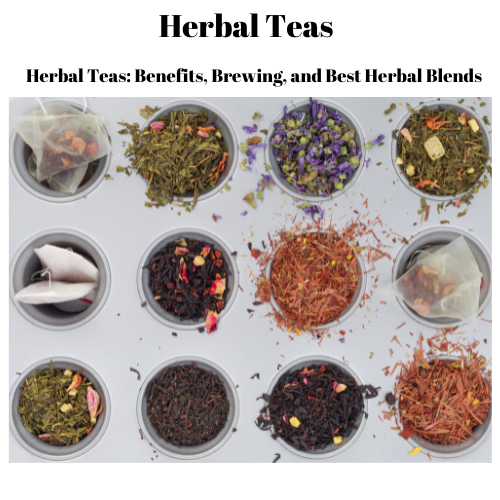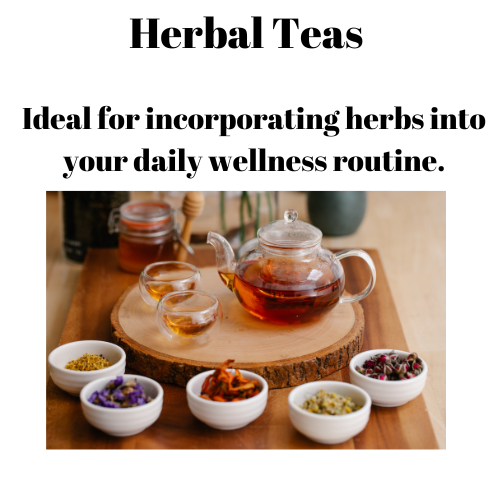Making herbal tea is one of the easiest and most effective ways to extract the beneficial compounds from herbs. Whether you're brewing tea for relaxation, digestion, immune support, or energy, following the right method ensures optimal flavor and potency.
Step 1: Choose & Measure Your Herbs
✅ Select high-quality, organic dried or fresh herbs suited for your health goals.
✅ Use 1 tablespoon of dried herbs or 2 tablespoons of fresh herbs per cup of water.
✅ If creating a herbal blend, mix the herbs thoroughly for a balanced flavor and effect.
Pro Tip: Some herbs work best alone, while others are enhanced when combined. For example:
- For Digestion: Ginger + Peppermint + Fennel
- For Sleep & Relaxation: Chamomile + Lemon Balm + Lavender
- For Immunity: Elderberry + Echinacea + Licorice Root
Step 2: Heat the Water
✅ Use fresh, filtered water for the best taste and extraction.
✅ Heat water to the appropriate temperature for different herbs:
- Delicate herbs (flowers, leaves): 175-185°F (not boiling)
- Roots, barks, and seeds: 200-212°F (boiling)
Pro Tip: Overheating delicate herbs can destroy beneficial compounds and cause bitterness.
 Step 3: Steep the Herbs
Step 3: Steep the Herbs
✅ Place herbs in a heat-safe mug, teapot, or infuser.
✅ Pour hot water over the herbs, ensuring they are fully covered.
✅ Cover the mug or teapot to trap essential oils and nutrients.
✅ Steeping time varies depending on the herb type:
- Leaves & flowers: 5-10 minutes
- Roots & barks: 15-20 minutes (or use a decoction method)
Pro Tip: For a stronger tea, extend steeping time—but be aware that some herbs become bitter with prolonged steeping.
Step 4: Strain & Serve
✅ Use a fine-mesh strainer, tea infuser, or cheesecloth to remove the herbs.
✅ Pour the tea into a cup and let it cool slightly before drinking.
✅ Optional: Add honey, lemon, or cinnamon for extra benefits and taste.
Pro Tip: If making iced herbal tea, let the tea cool completely before refrigerating.
 Step 5: Proper Storage & Labeling
Step 5: Proper Storage & Labeling
✅ Store loose-leaf dried herbs in an airtight glass jar in a cool, dark place.
✅ Label the jar with:
- Herb name(s) & botanical name(s)
- Brewing instructions (e.g., "Steep 10 min at 185°F")
- Date of purchase or preparation for freshness tracking
- Any safety warnings (e.g., "Not recommended during pregnancy")
Pro Tip: Dried herbs maintain potency for about 6-12 months when stored correctly.
Final Thoughts: Why Drink Herbal Tea?
✅ Natural & Caffeine-Free: Most herbal teas provide pure plant-based benefits without stimulants.
✅ Customizable & Therapeutic: Create your own blends to target specific health needs.
✅ Simple Yet Powerful: A quick and easy way to incorporate herbs into your daily routine.
Making your own herbal tea blends allows you to enjoy the purest, freshest, and most beneficial herbal infusions tailored to your needs.
Start today with high-quality loose-leaf herbs and brew your perfect cup of tea!



 Step 3: Steep the Herbs
Step 3: Steep the Herbs Step 5: Proper Storage & Labeling
Step 5: Proper Storage & Labeling